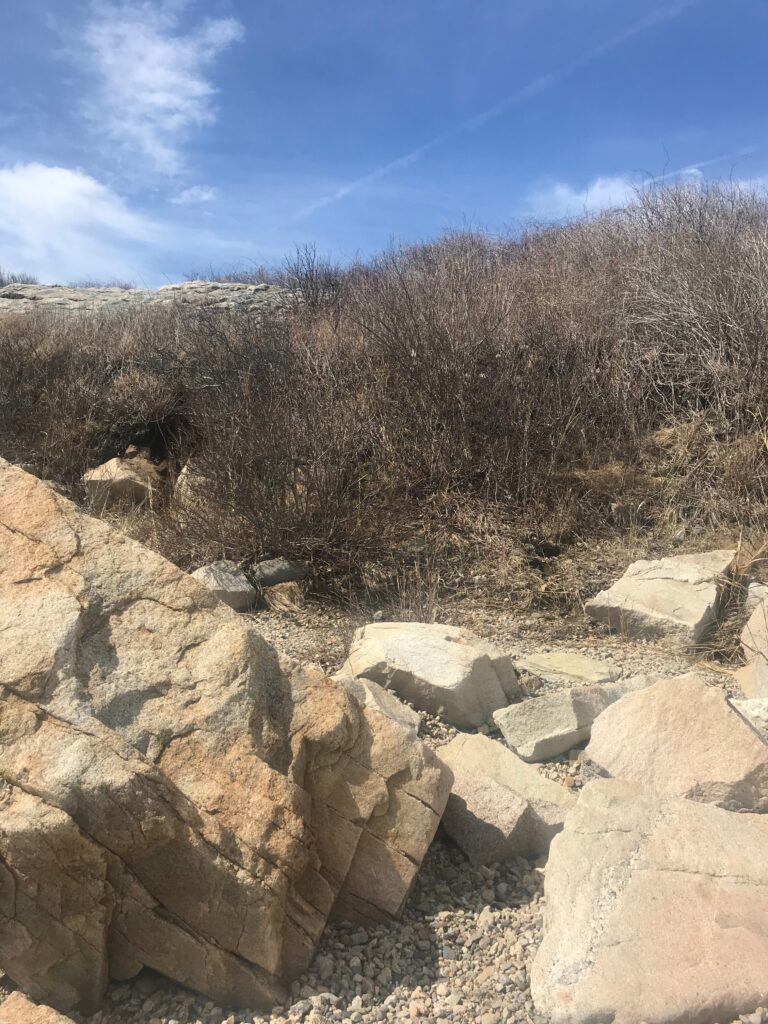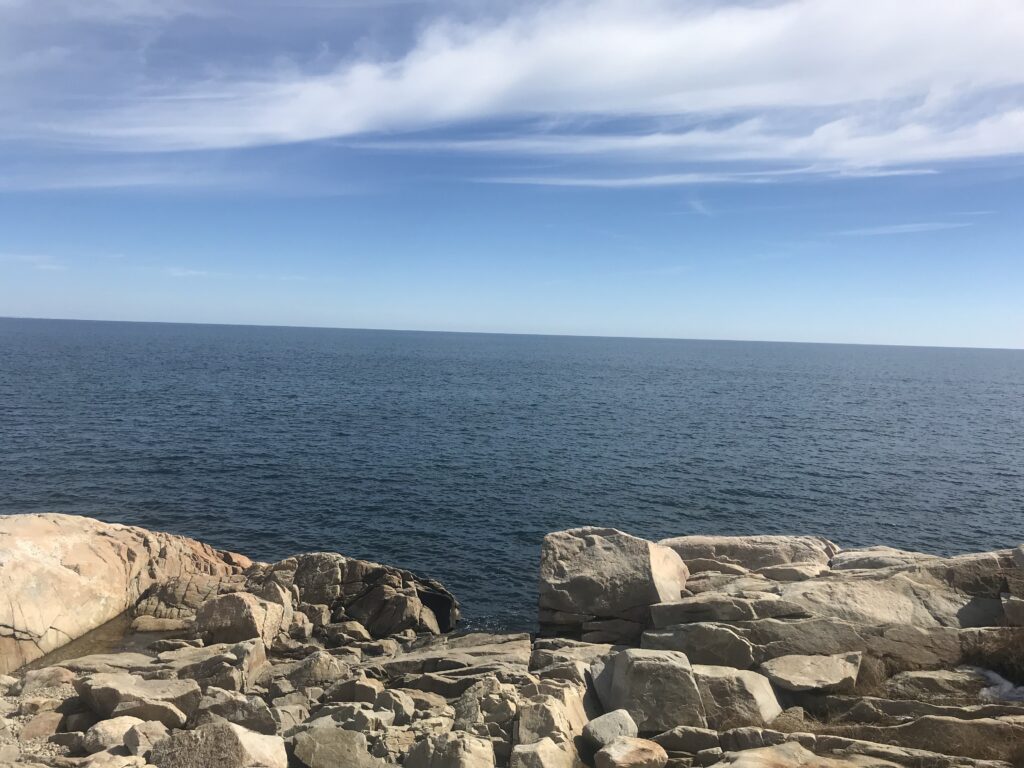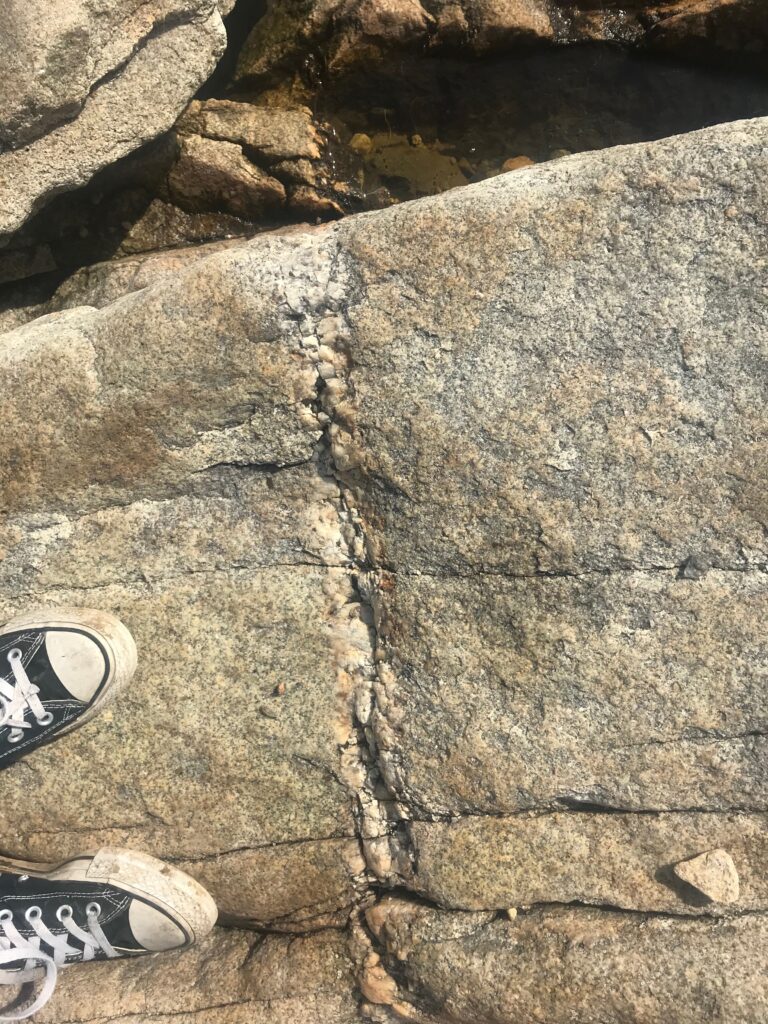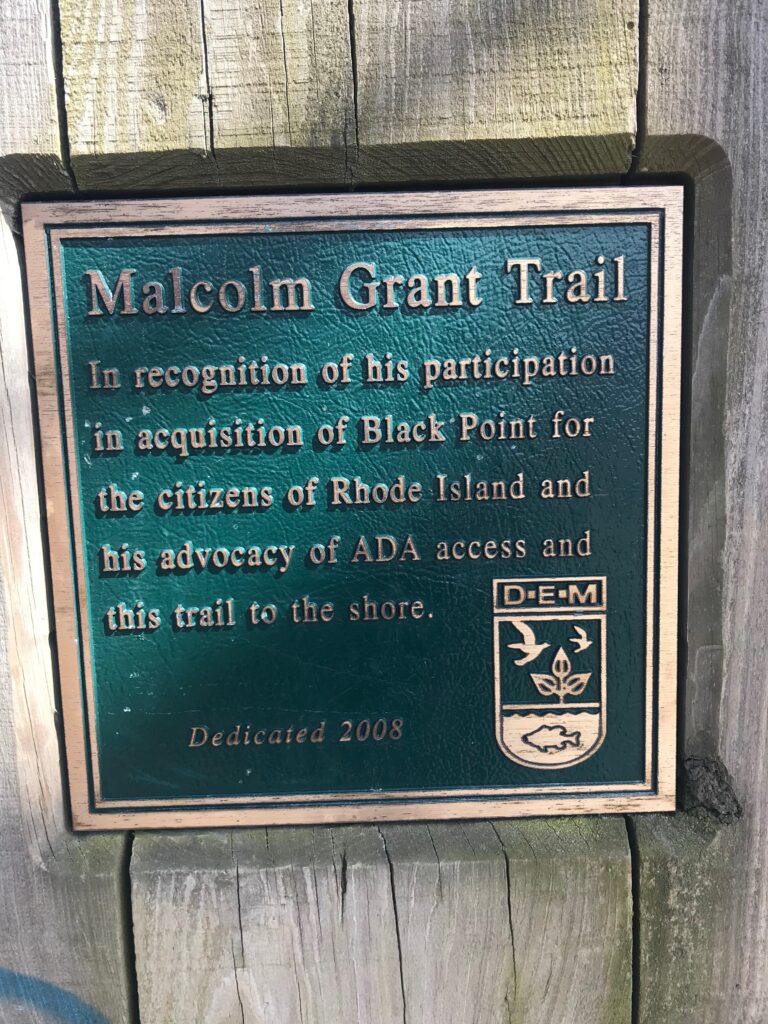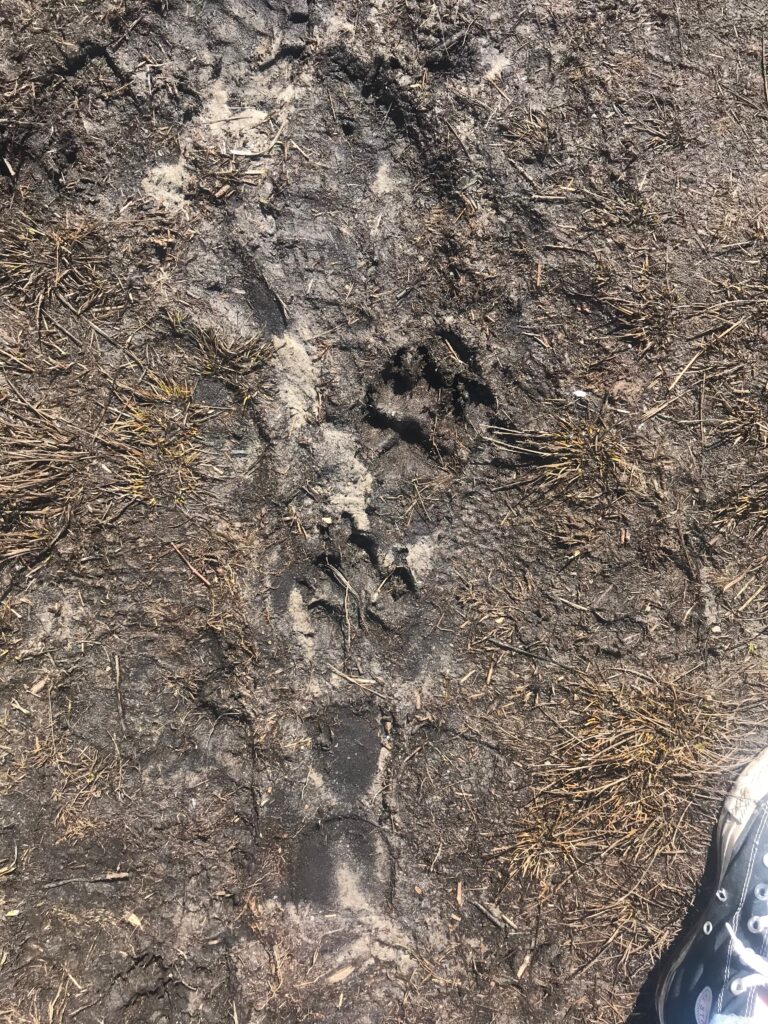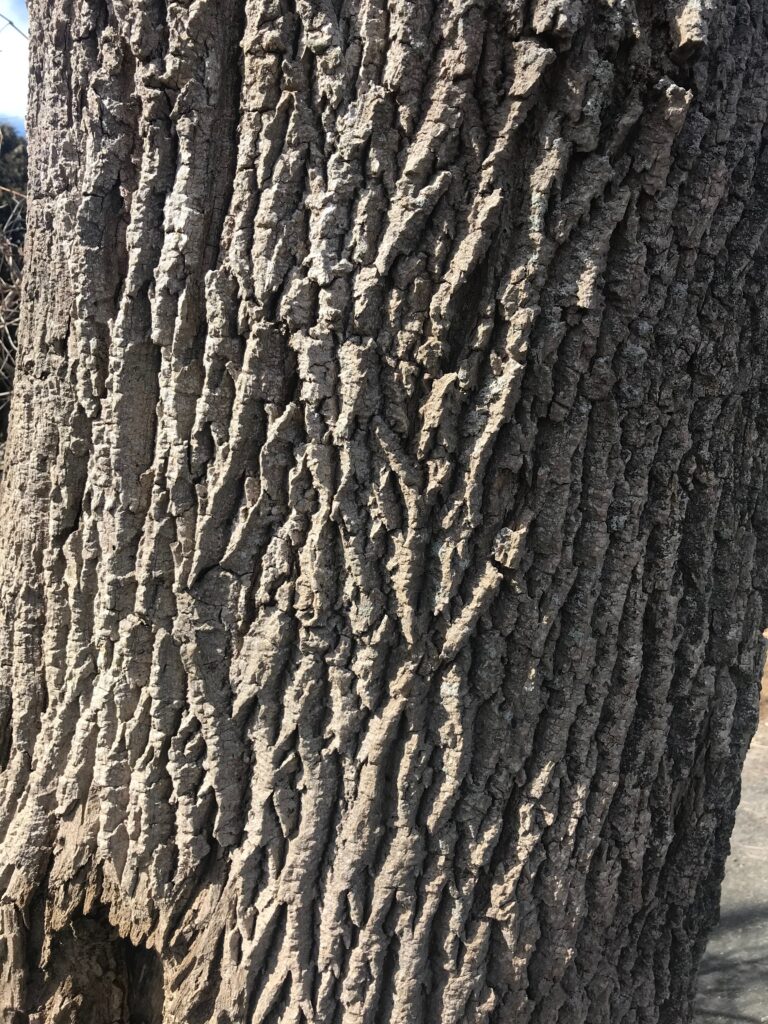This week I visited Black Point Park and Fishing Area in Narragansett, Rhode Island. During my visit I mainly followed the Malcolm Grant Trail which historically is a well known public access point and natural area along Narragansett Bay. I found it interesting how drastically the vegetation changed in relation to distance from the ocean. The initial ecosystem seemed to dominate with hardwood trees including species such Black Cherry and Ash. The species found here overlapped with tree species at my VT Centennial site though Eastern White Pines did not dominate the Black Point stand as they do in Centennial. Closer to the ocean was a buffering area of small shrubs and grasses. Some of these species included pokeweed and winged sumac, both which are not found at my regular phenology site. Black Point was also noticeably more windy then my site in VT where a larger forest patch creates wind protection. This difference may create even more differences in the species who live in each habitat.
Walking along the muddy parts of the trail I saw many dog tracks alongside human footprints. Unfortunately these were the only tracks I founds. Still, I suspect both White Tailed deer and Red Fox to live in this region. Deer as they are a very common and an adaptable species, and Red Foxes as they thrive in areas with both woodland and forest edge.
The cliff area boarding the ocean showed cracks and erosion from the water. Additionally all of the stones found on several stone beach inlets were smooth from the constant crashing of waves. This differed from the stones at my Centennial Site that exist jagged and have undergone far less erosion from the weaker brook. Viewing the calmer waters protected by inlets I saw several coastal bird species not found in Centennial such as mergansers ducks. Although the woodland area found at Black Point did share several species with that of my site in Centennial, the ecosystems as a whole are very different. Centennial is a developing complex forest while Black Point is a coastal habitat making the two fundamentally different.
